Overview
Connectors provide a no-code means of making API calls to external systems and can also transform URLs or strings found in comments or messages into structured Orders, Shipments, Itineraries, Tasks, etc. that are easy to access right from a conversation in Front. With Connectors, you can build rules, macros, and chatbots that retrieve or update information in external systems and also attach a summary of information from an external system directly to conversations in Front.
Benefits of Connectors
- Don't require code
- Easily bring in external context into Front and perform external actions from Front
- Tie directly into Front rules, macros, and other automations as compared to plugins—allowing you to kick off efficient workflows in Front based on external data
Types
Connectors come in two varieties:
- Application requests—these connectors make API calls to external systems. They are your "remote control" for making changes in external systems directly from Front.
- Application objects—these connectors identify matching patterns (such as order IDs) in Front conversations or comments and automatically attach a structured object to the conversation that contains information about and a link to the external resource. Application objects build upon the Links resource in the Core API. They are your "window" into external systems and present visual information to Front teammates.
To learn how to add a connector feature to your app, refer to our Help Center articles.
Limits
Application objects are limited to the refresh rates and conversation linking limits noted in the Help Center article, and application requests are limited to the request rate applicable to servers.
Sample code for connectors
Refer to our Sample applications page for example code related to connectors.
Community space and ongoing examples
Visit our Connectors community space to:
- Subscribe to our examples forum to see real-world implementations of Connectors in action.
- Join our Connectors group to access in-depth workshop and events, as well as share your thoughts with us.
- You can also view all our Connector example videos on YouTube.
Connectors Learning Path on the Front Academy
We created an in-depth tutorial for using Connectors, including building your own Connector with Asana, on the Front Academy.
Connector examples
Application requests
Application requests represent API requests. You can use application requests within rules, macros, and chatbot flows. For example, you might create an application request that cancels an order in your e-commerce or fulfilment system. Front users could then trigger that application within a macro, as shown in the following image.
You can use API requests to perform actions in other systems or retrieve data from them for use in Front workflows. You can imagine updating the status of different objects in external services or databases, creating a new object, retrieving data for use in rules, etc. So long as the system you're working with provides a public API, you can leverage the power of application requests to interact with that API without writing a single line of code.
Application objects
If a customer writes in to your team with a question that references a particular order, shipment, itinerary, task, etc., an application object can automatically extract that object’s URL and other metadata, and attach it to the header of the conversation for easy access:
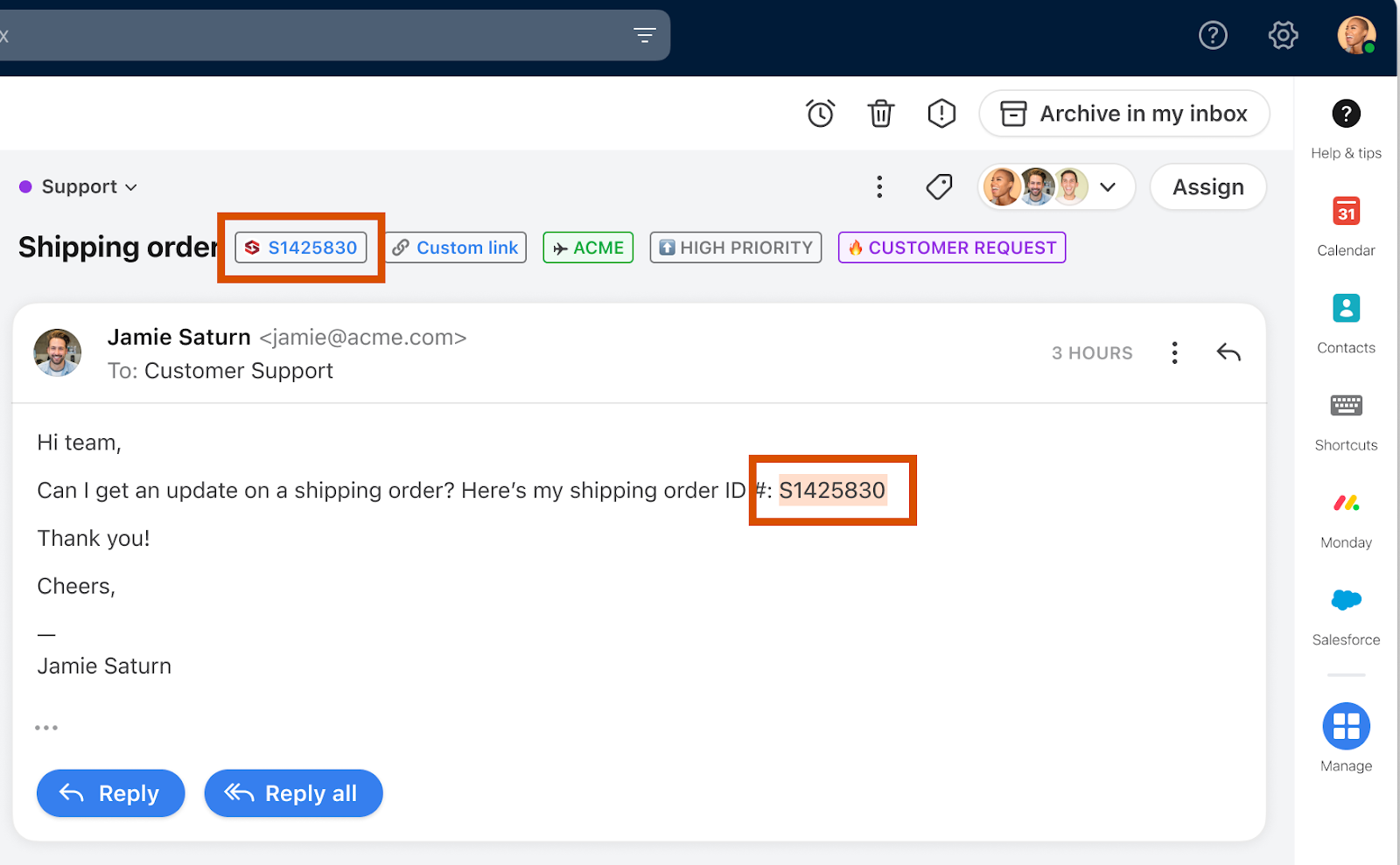
This also applies to objects referenced in comments, which can also be easily previewed:
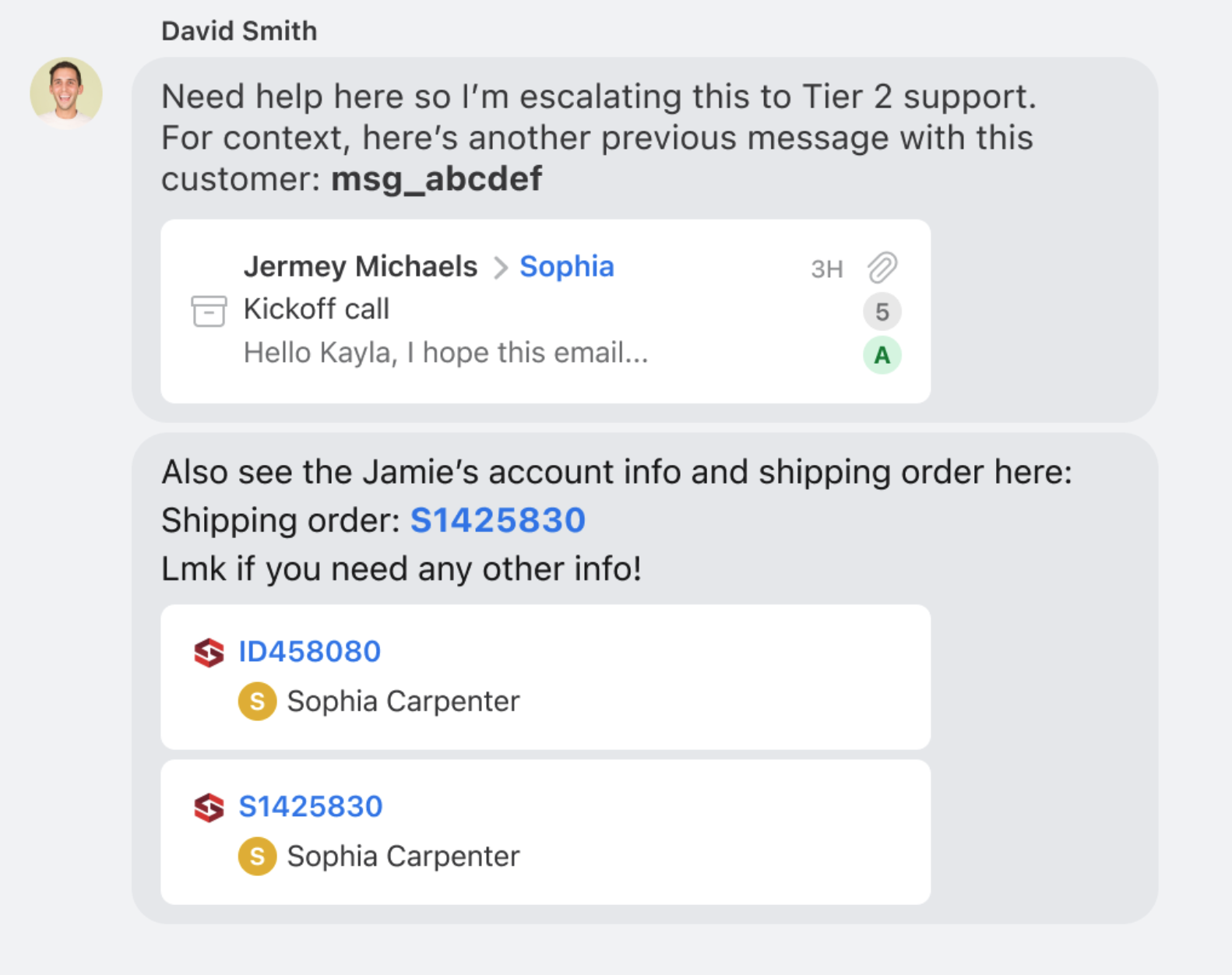
When attached to the conversation header, it’s easy to open the object in your external CRM/TMS/management system, or view details directly in Front:
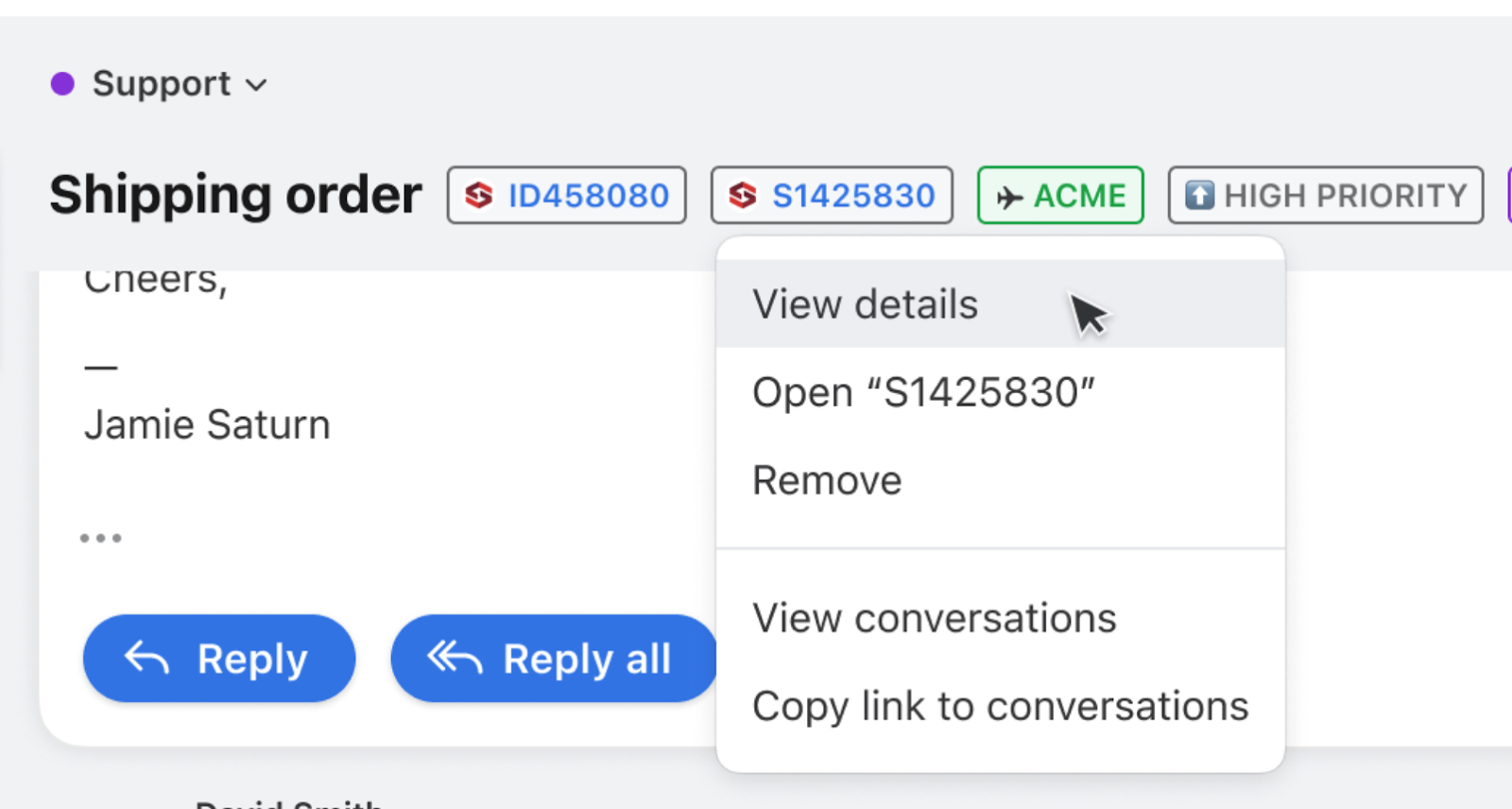
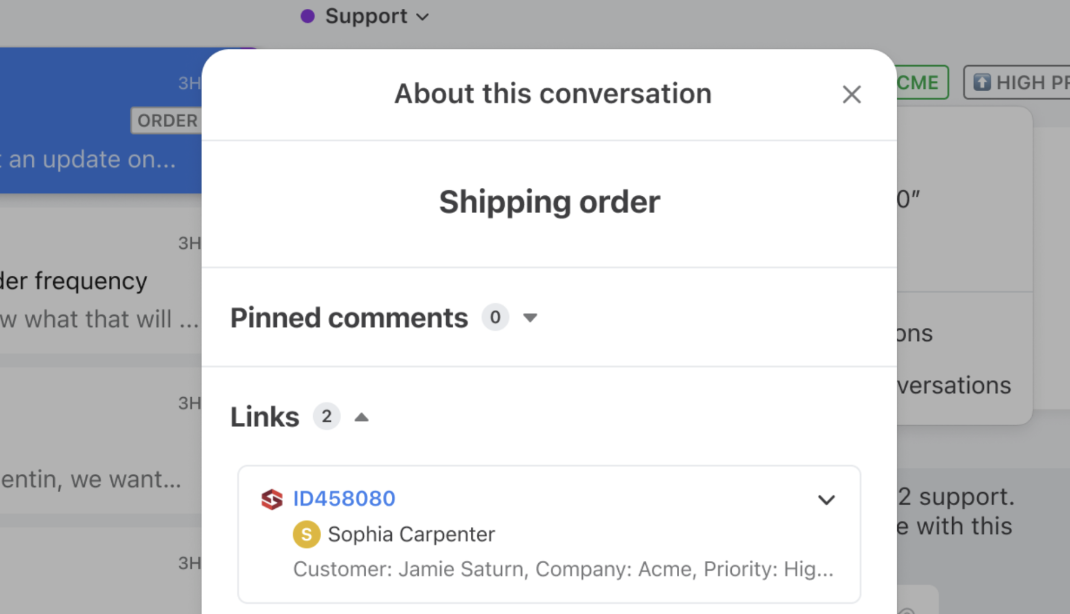
Furthermore, application objects can do more than attach a link to a conversation. If you want more information at a glance, application objects can surface it to your Front users, as shown in the following image of an example Shopify order.
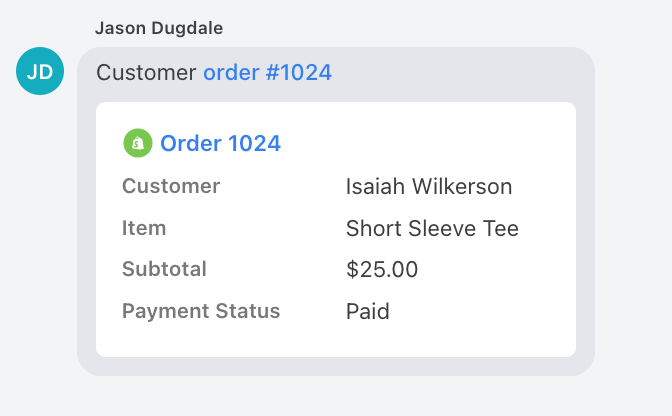
Updated about 2 months ago
